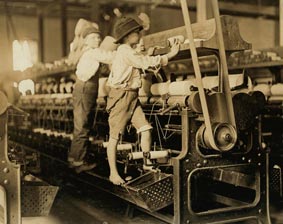
<aside> 💡 More Coming Soon!
</aside>
*currently Rocketship Foundation research: Children as Property of the Parent
*currently Rocketship Foundation research: Children as Property of the State
*currently Rocketship Foundation research: Over 50% of labour force in building the Americas being under 16 years old
The noun “kid” in contemporary English is mostly used to informally refer to a child, e.g. “she’s just a kid” or “only 90s kids will remember”. However, the original meaning (which still exists but is rarely used outside the context of agriculture) is “a young goat”.
“Kid” is actually not a native English word. It is an early borrowing from Old Norse “kið” (“young goat”), and its descendants can still be found in modern Scandinavian languages, e.g. “killing” (literally “kid-ling”) in Swedish (also meaning “young goat”). However, the word “kid” itself in Swedish now means “a young deer”.
Finally, the English verb “kid” is probably derived from the noun via the meaning “to treat as a child”.
NOTE: when they mean 'young goat', they better have meant Greatest Of All Time!
In the Antiquity, nobody thought to give special protection to children.
In the Middle-Age, children were considered as “small adults”.

In the middle of the 19th century, the idea appears in France to give children special protection, enabling the progressive development of “minors’ rights”. Since 1841, laws start to protect children in their workplace. Since 1881, French laws include the right for the children to be educated.
At the beginning of the 20th century, children’s protection starts to be put in place, including protection in the medical, social and judicial fields. This kind of protection starts first in France and spreads across Europe afterwards.